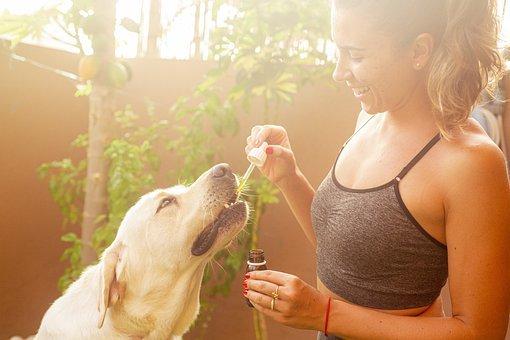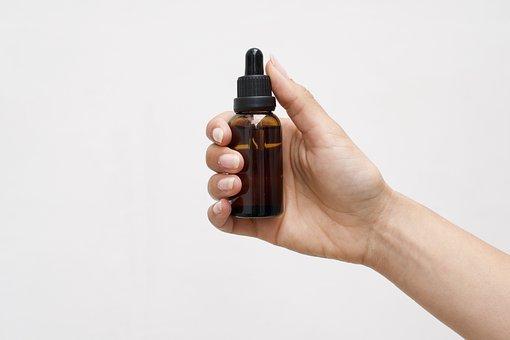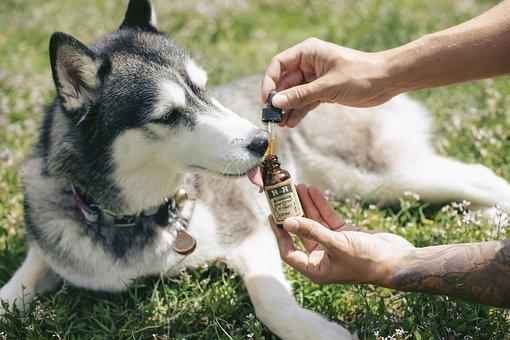CBD for Dogs: 7 Things to Consider
CBD is increasingly becoming a household name in the pet industry, and it’s easy to see why.
Short for cannabidiol, CBD is a naturally-occurring cannabinoid in hemp touted for its many pharmacological benefits. Numerous studies have cited the compound’s potential for treating several medical conditions in humans and animals. But while cannabidiol is effective for humans and animals alike, there are certain factors to bear before sharing this compound with your furry, scaly, or feathery friends.
Listed below are the top seven considerations before sharing CBD with your dog.

Determine If It’s Legal
The first thing to do before investing in CBD-infused pet products is to establish if cannabidiol is legal in your jurisdiction.
In the United States and most European Union (EU) countries, CBD products are legal if they’re hemp-derived and contain a maximum of 0.3% tetrahydrocannabinol (THC).
THC is another famous cannabinoid in marijuana that boasts many health benefits. However, the compound is best known for its psychoactive nature and is more commonly consumed for recreational than medical purposes.
If you’re located outside the US and EU, your best bet is to check your local cannabidiol laws before purchasing any CBD supplements.
Know the Benefits
Another important consideration before administering cannabidiol to your dog is to understand how the animal stands to benefit from this compound. Fortunately, CBD for dogs may offer several health benefits. Examples include;
Pain Relief
Pain is one of the most commonly reported medical problems in humans and pets. It also happens to be among the many issues that cannabidiol might treat.
CBD relieves pain by interfering with the pain-signaling receptors in your dog’s endocannabinoid system. One such receptor is the vanilloid receptor.
Alleviating Inflammation
Pain and inflammation are essentially inseparable. These conditions either occur side by side or share a cause-effect relationship.
Administering cannabidiol to your dog might reduce various inflammatory responses, including swelling and redness. A 2018 study investigating the effects of CBD on dogs with osteoarthritis found that administering the compound helped reduce the symptoms of pain and inflammation remarkably.
Easing Anxiety and Insomnia
Cannabidiol is famed for its calming properties, which make it a potential remedy for anxiety and insomnia in dogs.
Not only might CBD’s sedating abilities help in treating canine anxiety disorders like separation anxiety and obsessive-compulsive disorder. They can also improve your dog’s sleep quality by shortening his sleep onset time.
Treating Epileptic Seizures
Seizure is another common medical problem in dogs that you can mediate using cannabidiol. CBD fights seizures in dogs the same way as in humans – by desensitizing the receptors in the brain that trigger seizure attacks.
According to this 2019 study, CBD might produce remarkable anti-seizure benefits if administered alongside common seizure medications.

Prioritize Supplements That Come With a Certificate of Analysis (CoA)
All industrially-prepared cannabidiol products must undergo extensive lab testing to be safe and useful for consumption. Results from these tests are usually published in a certificate of analysis.
The CoA details the CBD potency in a product as well as the concentration of any other ingredients. It proves that all the ingredients in the supplement are exactly as they appear on the label and that you’re not getting swindled out of your money.
Whether buying cannabidiol online or locally, prioritize products with a certificate of analysis. Most importantly, ensure that the CoA comes from an independent laboratory and not one affiliated with the retailer.
Insist On Broad-spectrum Products
Cannabidiol supplements fall into three categories depending on their cannabinoid profile. They include;
- CBD isolates contain cannabidiol as the only cannabis compound
- Broad-spectrum products which contain cannabidiol and other non-psychotropic cannabinoids
- Full-spectrum products which contain cannabidiol, tetrahydrocannabinol, and other cannabinoids
Experts recommend shunning full-spectrum CBD products as these supplements contain THC, which might get your dog high.
Isolates aren’t inherently harmful. But they provide limited therapeutic benefits since they only contain CBD. That leaves broad-spectrum as the best CBD product to share with your pup.
Choose the Right Product Formulations
There are several ways to consume cannabidiol products. Popular delivery methods include;
- Vaping CBD e-juices
- Smoking dried marijuana buds
- Administering CBD oral tinctures sublingually
- Ingesting CBD-infused edibles
- Applying CBD-enriched topicals
Dogs shouldn’t smoke or vape. That leaves you with oral tinctures, CBD edibles, and CBD topicals.
Administering cannabidiol tinctures sublingually is generally considered the most effective way to give CBD to dogs. One study from Colorado State University found that CBD tinctures were more effective than gel capsules and topical creams.
However, cannabidiol tinctures would be unideal for anxious or timid dogs. If dealing with such canines, you might want to consider edible supplements. Lastly, CBD-enriched topicals would be best suited for treating conditions that affect parts of your dog’s coat, such as joint inflammation and skin irritation.

Go For Hemp-derived, CO2-extracted CBD
We’ve already pointed out the legal implications of buying hemp-derived CBD. The main reason most cannabis regulators recommend hemp is that this cannabis variant contains high CBD but low THC concentrations. Therefore, it’s less likely to get your dog high than other THC-high cultivars, such as marijuana.
But it’s not enough to ensure that a product is formulated with hemp-derived cannabidiol. It would also help to determine if the hemp was organically grown. Hemp is a renowned bioaccumulator. The plant can easily absorb toxins from the soil, fertilizers, and pesticides. That’s all the more reason to insist on cannabidiol manufactured from organic hemp.
Also, the best cannabidiol supplements for dogs should contain CBD extracted by the carbon dioxide method. Through such a method, CBD has fewer impurities, making it more potent.
Administer CBD in Moderation
Cannabidiol may provide numerous health benefits to dogs. But that’s only if used in moderation.
Giving your puppy more CBD than his body can handle will undoubtedly result in adverse effects, such as nausea, drowsiness, and irritability.
Now, there’s no standard of measure for the correct CBD quantity to give to dogs. Serving amounts generally depend on a dog’s age, body weight, and the nature of his medical condition.
The convention is to start with the lowest doses, especially if your dog is new to CBD. Monitor the animal closely for adverse effects before possibly increasing the doses.
Also, avoid giving your dog CBD as soon as he gets well. Otherwise, he may develop a tolerance for the compound.

Wrap Up
Cannabidiol is undeniably effective in treating various medical conditions in dogs. However, following the above-listed guidelines will go a long way in helping your puppy maximize CBD’s therapeutic benefits.



